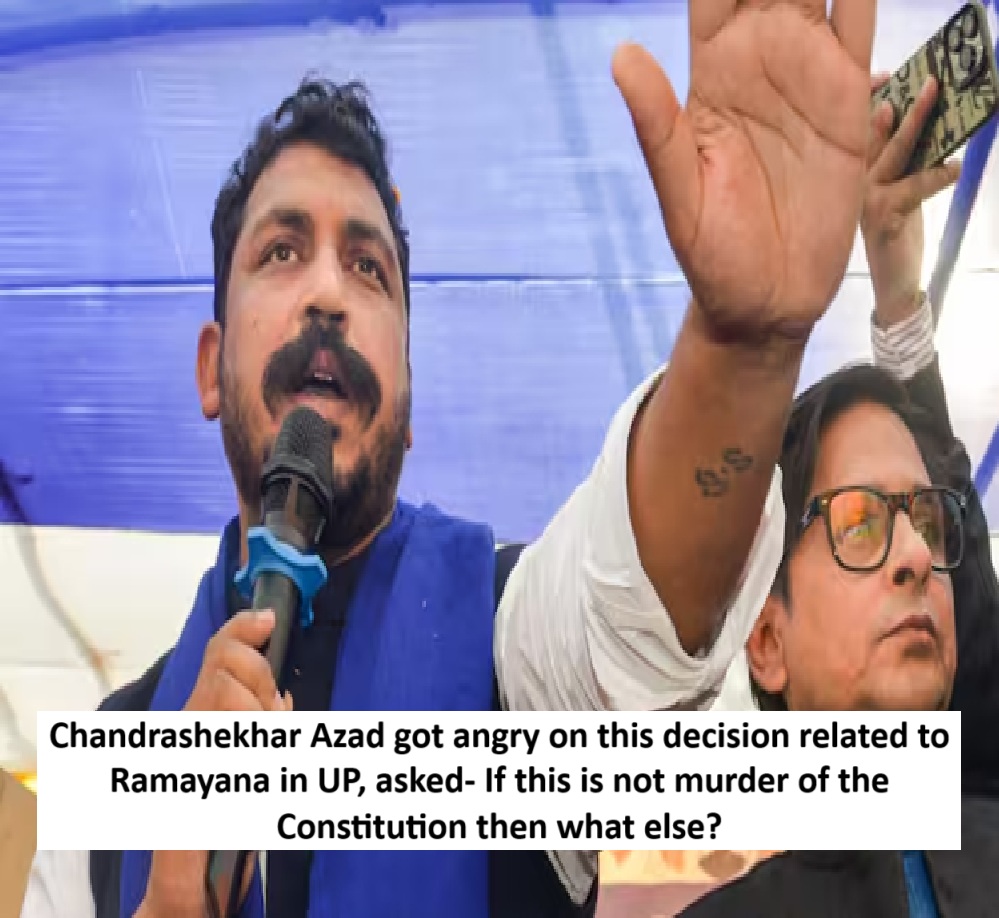
News Topical, Digital Desk : UP Politics: Chandrashekhar Azad, MP from Nagina Lok Sabha constituency in Uttar Pradesh and leader of Azad Samaj Party (Kanshiram), has criticized the Yogi government's decision to organize workshops on Ramayana and Vedas in government schools of the state. Azad has called this decision a violation of the basic spirit of the Constitution.
Azad wrote- Yogi government's decision to make one-sided workshops on 'Ramayana' and 'Veda' compulsory in government schools of Uttar Pradesh is not only a violation of the basic spirit of the Constitution, but it is also a direct attack on the social diversity of the country. This decision shows that the government is not focused on education, but on religious polarization to gain political advantage.
He wrote that where children from Dalit, Muslim, Buddhist, Sikh, Christian and tribal backgrounds study together in the same class, if the schools are made a platform for propagating a particular religion, then it is not only discriminatory but also against the religious freedom and constitutional rights of these children.
The MP wrote that Article 28 of the Constitution clearly states: No religious education can be given in any state-funded educational institution, and no student can be forced to participate in religious worship. Despite this, if the state government imposes religious workshops as part of its agenda, then it is a serious crime like murder of the Constitution.
'I want to ask...'
He said that I want to ask Chief Minister Yogi Adityanath , the conspiracy to impose a religion in the name of education - if this is not the murder of the Constitution, then what else? The Constitution made by the most revered Baba Saheb Ambedkar showed us the path of secularism, equality and scientific thinking. Today, leaving that path, the Yogi government is making education a laboratory of majoritarianism.
The MP wrote that Bhim Army, Azad Samaj Party (Kanshi Ram) have a clear opinion that if workshops are to be held on any subject, then they should be based on the Constitution, fundamental rights, scientific thinking, social justice, and civic responsibilities. Children should be informed about self-empowerment, equality, and legal rights. They should be inspired to develop a rational, scientific and humanitarian outlook as per Article 51(A).
He wrote that even if religious or cultural subjects are included, there should be 'Sarvadharma Sambhaav' (equality of all religions) in it and the child's choice and religious freedom should be fully respected. The aim of education should not be to propagate religion but to create sensible citizens. This is the soul of India, this is the call of the Constitution.
Read More: UP STF arrests SP spokesperson Manoj Yadav, to be produced in Barabanki court
--Advertisement--

 Share
Share



